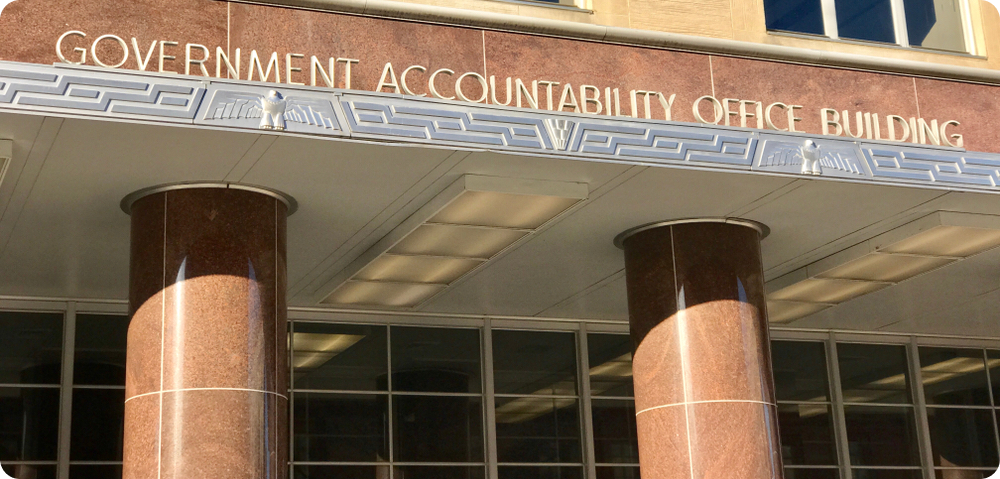Introduction
This is the second in a three-part series on the recent report that summarizes the comprehensive EB-5 study conducted by the United States Government Accountability Office (GAO).
This article will focus on the report’s findings on fraud and national security concerns in EB-5. The GAO study analyzed data from fiscal years 2016 through 2021 and information shared by USCIS officials and staff.
2 types of fraud risks in EB-5: investor fraud and project-related fraud
GAO, in a previous report from August 2015, highlighted that USCIS and other entities have recognized distinct risks of fraud in the EB-5 program. The investment aspect of the program introduces heightened complexity and the potential for fraud. Additionally, GAO had noted in the past the challenges faced by USCIS in verifying the source of investor funds and that the funds are being invested as claimed.
The first type of EB-5 fraud involves investors intentionally misrepresenting information to obtain immigration benefits. Immigration-benefit fraud can take various forms, including document fraud and identity fraud. It may also involve deliberately concealing illicit sources of investment capital.
The second type of EB-5 program fraud can occur when individuals, including promoters and persons associated with regional centers, new commercial enterprises, job-creating entities, or security issuers, defraud unknowing investors.
Examples of EB-5 fraud include:
Petitioners use illicit funds, like money obtained through criminal activities, to finance their EB-5 investments
Petitioners or regional center applicants intentionally misrepresent the number or type of jobs created by an EB-5 project
Regional center staff members misappropriate EB-5 investor capital meant for legitimate projects for personal gain
Petitioners use EB-5 as a means to enter the United States with the intent to carry out activities that pose national security risks
How often do fraud and national security concerns occur?
USCIS data shows that in fiscal year 2021, the number of fraud and national security investigations created comprised less than 3% of pending I-526 and I-829 petitions.
The number of confirmed fraud and national security concerns was less than 1% of the total pending I-526s and I-829s.
Looking for an EB-5 investment or immigration lawyer you can trust?
Let's TalkTrends for fraud leads and cases
The number of fraud-related leads in the EB-5 program fluctuated between fiscal years 2016 and 2021. New leads peaked in fiscal year 2019, more than doubling the number from 2018. This increase was due to various factors like enhanced training for adjudicators on areas such as lawful source of funds, new checks for connections to high-risk countries or entities, and inputting a backlog of fraud-related tips. There was a decrease in leads in both fiscal years 2020 and 2021.
Not every lead becomes a case — the majority of leads did not contain actionable information.
The number of fraud cases fluctuated between fiscal years 2016 and 2021. A similar number of cases occurred in fiscal years 2016, 2018, and 2019. However, in 2021, there was a decrease of approximately 40% compared with 2019. Officials attribute this decline to various factors, including the impact of COVID-19 on overseas verification requests as well as a declining number of leads.
Percentage of cases that found material fraud
It should be noted that not every case resulted in a finding of material fraud. The numbers between fiscal years 2016 and 2021 range as follows:
2016: 50%
2017: 29%
2018: 56%
2019: 42%
2020: 68%
2021: 67%
Fraud cases by country of birth
In fiscal years 2016 to 2021, Chinese petitioners accounted for at least 57% of the total fraud cases. However, this number was almost exactly proportional to the number of Chinese petitions which comprised 58% of all filings.
Vietnamese petitioners accounted for the second highest number of fraud cases with at least 10% of the total cases; this number was disproportionally high as Vietnamese investors comprised 6% of all petitioners.
The number of referrals and requests for assistance due to national security concerns
The number of referrals and requests for assistance related to national security concerns submitted by IPO employees increased substantially from fiscal years 2017 through 2021. The number more than tripled in FY 2021 compared with FY 2017.
The number of confirmed national security concerns
The number of confirmed national security concerns was very similar in fiscal years 2016 through 2020. However, there was a significant increase in confirmed concerns in FY 2021.
USCIS’s Fraud Detection and National Security (FDNS) officials attributed the rise in referrals and requests for assistance as well as confirmed national security concerns to the release of additional threat information regarding organizations of concern by interagency partners in 2021.
Security concerns: referrals and requests for assistance by country of birth
From fiscal years 2016 through 2021, individuals born in China accounted for at least 60% of national security concern referrals and requests for assistance. Once again, this number is closely proportionate with the total number of petitioners from China.
Referrals and requests for assistance with missing or unknown countries of birth comprised approximately 17%, followed by Iran (at least 7%), Venezuela (at least 3%), and Russia (at least 3%).
Federal law-enforcement agency actions
USCIS does not conduct enforcement actions. Instead, the Immigration Service refers cases involving confirmed fraud, criminal activity, or national security threats to federal law enforcement agencies.
In fiscal years 2016 through 2021, the Securities and Exchange Commission (SEC) received more than 1,280 tips, complaints, and referrals related to potential securities fraud violations in EB-5.
The SEC referred 69 to other law enforcement agencies at the state, local, or federal level.
The SEC initiated 47 enforcement actions, and 45 resulted in favorable outcomes, while two cases are still pending.
During this period, ICE HSI (U.S. Immigration and Customs Enforcement's Homeland Security Investigations) launched 14 EB-5 cases based on leads or referrals from USCIS. The agency took 123 actions, including criminal arrests, indictments, convictions, seizures, and administrative arrests. ICE HSI officials investigated fraud cases that included money laundering, tax evasion, false statements on EB-5 forms, and mail or wire fraud.
From 2016 through March 2022, the FBI investigated 16 cases related to EB-5.
DS-260 denials based on fraud and national security concerns
Between fiscal years 2016 through 2021, the U.S. Department of State issued more than 37,000 visas to EB-5 applicants and their family members, while refusing over 3,600 EB-5 visa applications. Unlike USCIS, the State Department records the reasons for refusing EB-5 visa applications.
State Department data shows that 76 EB-5 visa refusals, approximately 2% of the total refusals, were directly related to fraud or national security concerns.
The countries with the highest number of refusals were China, Iran, India, Vietnam, and South Korea.
Year-long manual review in 2018: source of funds was the most common type of fraud
Due to the limitations of FDNS-DS, IPO FDNS officials must undertake time-consuming manual reviews of extensive paper files to monitor data trends and identify emerging fraud and national security risks.
In 2018, IPO FDNS conducted a year-long review of fraud leads and cases from 2015 to 2017 to identify prevailing trends. Source of funds fraud was the most common type of referred and confirmed fraud.
The findings in this year-long manual review helped develop future training on identifying source of funds fraud for adjudicators and economists.
The 2018 review showed low numbers of confirmed fraud and national security risks in EB-5
Officials noted that the 2018 analysis was valuable in revealing relatively low percentages of confirmed fraud and national security concerns in EB-5. Approximately 1% of petitions were linked to confirmed fraud, while about 0.03% (3 per 10,000) were associated with national security concerns.
Regional center denials before the RIA
Prior to the EB-5 Reform and Integrity Act of 2022 (RIA), IPO could deny a regional center application or terminate a regional center for one of two reasons: it did not serve the purpose of economic growth or it failed to submit the required information or pay the required fee.
From August 2015 to June 2021, USCIS terminated 516 Regional Centers.
Shockingly, in June 2018, the director of USCIS testified before Congress, that the agency did not have the explicit statutory authority to terminate a regional center based on criminal or security reasons.
GAO conducts a review of 234 regional center terminations and finds 9 cases of fraud
The report authors themselves reviewed 234 publicly available regional center termination notices from fiscal years 2016 through 2021. They found nine cases in which fraud was a reason for termination.
How the RIA changes things
Under the RIA, there is now clear statutory authority to deny or revoke petitions, applications, or benefits in cases involving fraud, deceit, intentional material misrepresentation, criminal misuse, as well as public safety or national security concerns.
USCIS efforts to address fraud and national security risks
Since 2016, IPO has taken several initiatives to tackle fraud and national security risks associated with the EB-5 program. Some of these initiatives include:
Establishing a compliance division in 2017; this division reviewed regional center annual certifications
Committee on Foreign Investment in the United States (CFIUS) reviews including transactions related to regional centers and job-creating entities (JCEs)
Implementing, in 2016, the Administrative Site Visit and Verification Program to conduct site visits to new commercial enterprises and job-creating entities to verify compliance with program requirements, such as job creation
Training that focuses on various aspects of fraud and national security, such as training to verify a lawful source of funds. In 2019, IPO partnered with the SEC to offer training on how to identify securities fraud
Checks and training related to high-risk countries and entities
IPO staff recognized areas for improvement
Out of six economists GAO interviewed, three expressed concerns about the efficiency of reviewing all projects through the Administrative Site Visit and Verification Program as some of the information collected during these visits is available online. Two economists said that the FDNS field staff who make site visits may lack an understanding of the intricacies of the EB-5 program.
In answer to these concerns, IPO officials stated they were offering support for site-visit field staff.
The majority of the staff interviewed held a positive view of the training provided by IPO. However, six out of the 15 staff members noted the need for additional training in banking, finance, and national security.
IPO officials said they offered financial training, but budgets hampered their ability to offer subject-specific training from 2020 until the middle of 2022.
Five staff members spoke of needing additional authority to deny petitions based on national security concerns. Four staff members wanted program changes to require regional centers and other entities to disclose more information on principals.
The RIA has since addressed these staff-member requests for changes. Further, the RIA makes regional center compliance reviews, which previously were voluntary, to be required at least once every five years.
Regarding regional center compliance reviews, in August of 2022, IPO said it was engaged in creating a formal audit program for this requirement.
Staffing shortages and the impact on fraud and national security concerns
According to feedback from 12 out of the 15 IPO staff members interviewed, backlogs and staffing shortages in IPO FDNS have resulted in significant delays in completing fraud or national security referrals and investigations.
When an adjudicator identifies a fraud indicator and requests assistance from IPO FDNS, it can take years before officials initiate an investigation or bring charges, or the adjudicator issues a request for evidence or a notice of intent to deny the petition. And during that time, fraud can continue to occur.
Some staff members admitted, alarmingly, that certain adjudicators be reluctant to refer petitions to FDNS due to the lengthy review process. Officials agreed that this may occur, and blame the backlogs and protracted investigation times on staff shortages.
Officials acknowledged that while the EB-5 program has grown in the number of petitioners and IPO adjudicators, the staffing levels in FDNS did not keep pace. Current staffing levels in IPO FDNS are 63% of what a staffing model recommends. And FDNS staff responsible for handling fraud and national security cases operate at less than 50% of their recommended levels.
To mitigate the challenges of a staffing shortage, officials claim they have implemented measures to enhance the efficiency of fraud and national security investigations. For example, they have created a worksheet that consolidates key information in each referral, reducing the reliance on paper files.
Also, to combat staffing shortfalls, officials stress the need for referrals.
Lastly, IPO officials say that the new discretionary denial authority imparted by the RIA has the potential to shorten the processing time for petitions, applications, and requests for assistance.
Our conclusions: the RIA should go a long way in curbing fraud and national security concerns, but more training and data management are needed
EB-5 fraud and national security have been focal points for some time now, especially with critics of the program. Pre-RIA numbers show that confirmed fraud and security concerns comprised less than 1% of all pending I-526 and I-829 petitions. Fraud is the more prevalent occurrence, with source of funds fraud being the most common issue.
As six out of the 15 IPO staff members noted the need for additional training in banking and finance, it seems like a common-sense solution to identify source of funds issues and fraud lies in enhanced training.
And of the 234 publicly available regional center terminations during fiscal years 2016 through 2021. nine cases involved fraud. The RIA’s enhanced measures to prevent and detect fraud on an institutional level should go a long way in reducing the number of regional center fraud cases.
National security concerns are even more consequential than fraud. Thankfully, the incidence of confirmed national security issues is about 0.03%. If three out of 10,000 petitions involved a national security risk, this is a relatively small number, but given the gravity of what is at stake, any number is too many.
IPO staff did request the ability to deny petitions based on national security concerns, and since the study occurred, the RIA has addressed this issue. And, even pre-RIA, recent checks and training related to high-risk countries and entities show that IPO is moving in the right direction here.
Another narrative EB-5 critics often promote is that Chinese petitioners are a high-risk factor for fraud and national security; however, the GAO report shows that Chinese fraud and national security concerns are almost commensurate with the total number of Chinese petitions. These statistics should dismiss the notion that Chinese petitioners, in general, should be of significant concern to the program and the country.
With the RIA now law, fraud and national security concerns in EB-5 should be identified and managed better than ever. What IPO still lacks, however, is the data and system to correctly identify such evolving trends in the program — more on this in the upcoming third and final article in the series.
Read GAO report summary, part 1: EB-5 filing, adjudication, and regional center trends
Read GAO report summary part 3: USCIS data collection on EB-5 fraud and national security must evolve





